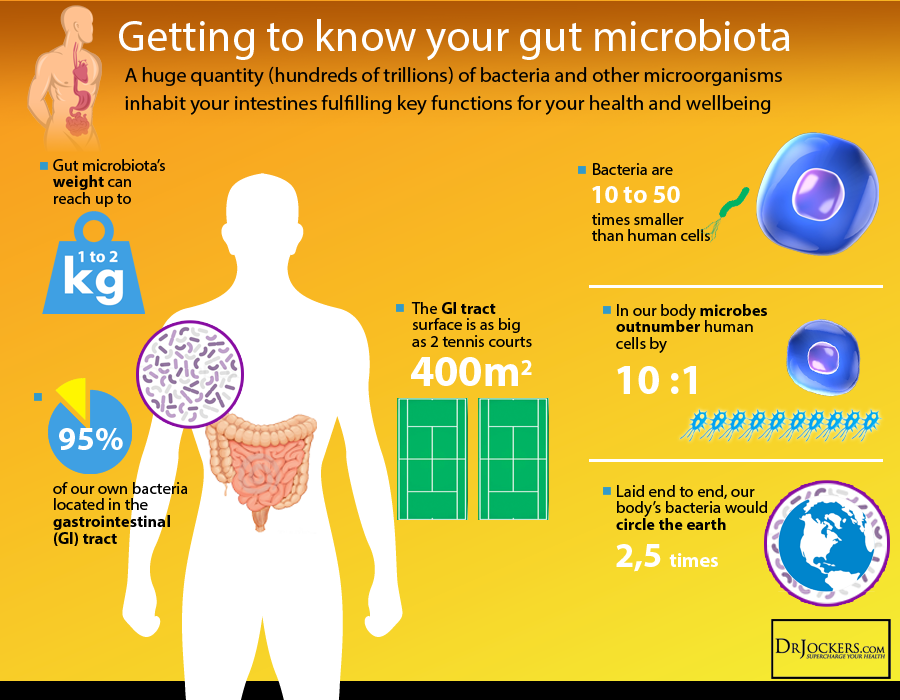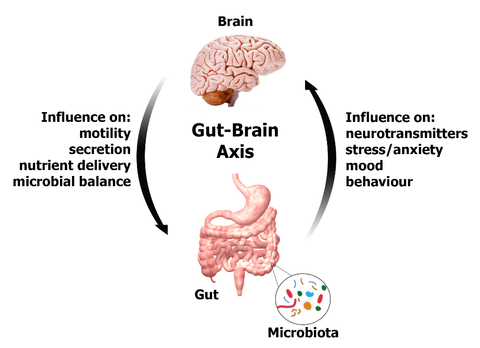The power of our sh*t – how gut microbiota affects our mental health
We´ve been listening it our whole childhood. „Oh my god don´t eat that sand!, How dirty you are!, Don´t lick that wall! (Am I alone?), Clean your hands!“ But nowadays it seems we have to pay price for higher hygiene and it seems it´s higher incidency different kinds of illneses as allergies but even autism. The best explanation is „Old friend hypothesis“. According this hypothesis evolution our immune system is closely connected with exposuring microbes. It makes sense – know your enemy. So our immunity is like muscle - we have to train it. This aslo explains natural reflex babies to put everything to their mouth. They´re just preparing for a lifetime fight with outer world.
From pathogens to close partners – introduction to our microbiota
We´re not alone, even in the empty room. Microbes are everywhere. Pasteur, Koch, Semmelweis, Roux, Behring warned us of the risks posed by pathogenic microbes, aganist which even our trained immunity has just limited resources. Because of the tremedous threat, we noticed them first and we started to fight against them with vaccination or antibiotics. Nevertheless, truth is just a small portion of our surrounding microbes are pathogenic. And for a lot of them, our body is their home. They are living also everywhere, on our skin, our penis and vagina, in the eyes, even in our gut. They don´t asking for attention, just silently doing their work.
In (and on) our whole body we are carrying from 1 to 2 kilograms of this pets. This is approximately weight of our brain. But let´s take closer look to our gut. Every person owns from 500 to 1000 different kinds of microbes in the gut and their number is 10-fold higher than our body cells number. Their genetic information contains 150-fold more genes than ours. But in uterus we´re all sterile. Colonisation of our body starts during birth and while we were travelling through our mother´s vagina, first microbes were „stuck on“ us. As a fingerprint, every person on Earth has got his own uniqe composition of microbiota in our stomach. Uh... okay... but for what? What´s the point of these small occupants? The answer is – something for something. In nature this kind of exchange trade is called symbiosis.
With our teeth we crush it, in our stomach and intestine we dissolve it with powerful enzymes such as amylases, lipases and proteases. The thing is, yield mediated through these enzyme mechanisms is not even close to 100 percent from nutritional potential of our food. Our gut microbiota helps us to digest another portion of energic resources hidden in our food. Bonus is a production of vitamins such as vitamin B and K.
Every good microbe counts... and for bad is no space. Simple presence of our symbiotic microbes, protects us against settlement pathogenic microbes and this is also reason why we aren´t dying in horrible stomach cramps and diarrheas. Still think dog is your best friend, hooman?
Hello brain, there is gut, how it´s going upstairs?
Except of these important functions, there is also other interesting function of our gut microbiota, intensively investigated nowadays. It communicates with our brain. How the hell it´s doing that? In a past years was discovered gut-brain axis or bidirectional communication between brain and gut through neuroendocrine but also immunologic mechanisms. It seems that informations about alternation of gut microbiota are sent through nervus vagus to brain and influence brain development and neuroplasticity. But it´s not just one direction way. External stimuli processed by brain cause releasing of hormones and they are maintaining structure of gut microbiota.
Okay so are you telling me...? Yes. After long introduction, finally the point of the article. For pilot studies of correlation between gut microbiota and mental health were used mice. They stressed these mice (bastards!) through separation from the mother and check their gut microbiota composition. It changed. But magic continues. Then they made fecal transplantation (basically they exchange their intestine content) and replaced gut microbiota from stressed mice to mice with normal peaceful conditions, this mice appears much higher level of stress in test and changes were notable also in their brains. But even more, it works aslo in the other way – if stressed mice recieved a gut microbiota from normal mice they were much more restful. Stressed mice just doesn´t give shit anymore. (#minuteofsilenceforthisjoke)
What we eat and what we feel
Okay, but what about us? Most recent findings confirm need of exposition of outer microbiota for correct development of our brain, but also for it´s normal development in adulthood. And yes, even in humans was found a connection between altered microbiota and changes of mood and last but not least major depressive disorder, but still more research is needed. After all, most of us are little more complicated than mice.
We are what we eat. Of course not in a sense of opinions of GMO opponents, but our food significantly affects our gut microbiota composition. A lot of scientists start talk about „psychobiotics“ as a new group of medicines based partially on a food composition, and they believe that in near future this group supports treatment of psychiatric illneses. This is supported by known fact that bad diet is known risk factor of depression, so careful choice of nutrients could be considered as prevent factor. One way is basically to supply microbes externally. A significant effect of probiotics was revealed for improving mood, but also as a prevent factor and reduction of depression. Interesting fact is this effect was observed just in people under 60 years and with no efect in a group of people older than 60 years. And there is lot of possibilities how to boost our gut microbiota through correct diet plan. So yet we aren´t trying exchange our gut microbiota to cure depressions, but is important to note this strange approach is sucessfully used for example in treatment infections of Clostridium difficile, and also, but with much less sucess rate and higher relapses, in treatment ulcerous colitis and there are clinical studies ongoing for many other diseases. Yummy.
So how we can take care about our microscopic buddies in our gut, what is a good source of probiotics and on the other side what is the damaging factors for them? We will talk about it in a next article! Stay tuned!
P.S. Mental diseases have too complex nature to explain their incidency only just with altered microbiota. It´s just a small piece in a mosaic in a variability and treatment of this kind of illneses. A lot of good scientific work is needed for making a final decisions from this findings. I you have a problem, seek for a professional help. Today´s medicine is making mile steps.
References:
https://www.ncbi.nlm.nih.gov/pmc/articles/PMC4662178/
http://www.gutmicrobiotaforhealth.com/en/about-gut-microbiota-info/
https://www.sciencedirect.com/science/article/pii/S2352289516300509
https://www.ncbi.nlm.nih.gov/pubmed/27509521
https://en.wikipedia.org/wiki/Fecal_microbiota_transplant


Congratulations. This post is featured in the week's nunesso's Curation post for the Nutrition and Natural Products industry. You have received a 100% upvote from us.
https://steemit.com/natural-products/@nunesso/weekly-nunesso-natural-products-curation-3
Congratulations @antmant! You have completed some achievement on Steemit and have been rewarded with new badge(s) :
Click on any badge to view your own Board of Honor on SteemitBoard.
For more information about SteemitBoard, click here
If you no longer want to receive notifications, reply to this comment with the word
STOP@originalworks
The @OriginalWorks bot has determined this post by @antmant to be original material and upvoted it!
To call @OriginalWorks, simply reply to any post with @originalworks or !originalworks in your message!
Congratulations @antmant! You have completed some achievement on Steemit and have been rewarded with new badge(s) :
Click on any badge to view your own Board of Honor on SteemitBoard.
For more information about SteemitBoard, click here
If you no longer want to receive notifications, reply to this comment with the word
STOP